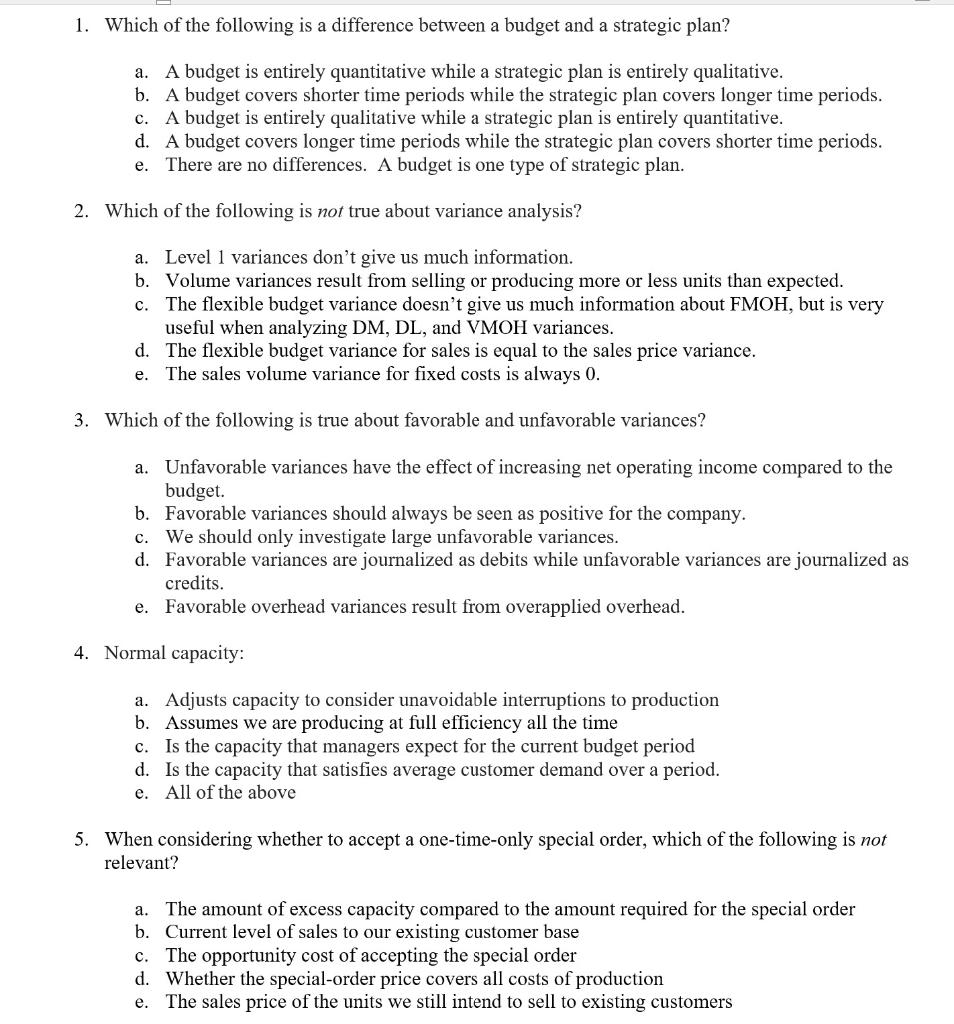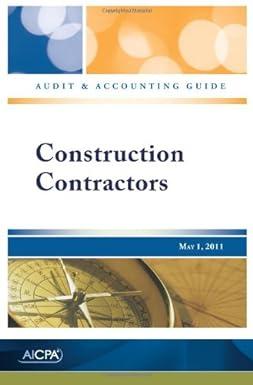Need help with homework questions; provide explanation please

1. Which of the following is a difference between a budget and a strategic plan? a. A budget is entirely quantitative while a strategic plan is entirely qualitative. b. A budget covers shorter time periods while the strategic plan covers longer time periods. c. A budget is entirely qualitative while a strategic plan is entirely quantitative. d. A budget covers longer time periods while the strategic plan covers shorter time periods. e. There are no differences. A budget is one type of strategic plan. 2. Which of the following is not true about variance analysis? a. Level 1 variances don't give us much information. b. Volume variances result from selling or producing more or less units than expected. c. The flexible budget variance doesn't give us much information about FMOH, but is very useful when analyzing DM, DL, and VMOH variances. d. The flexible budget variance for sales is equal to the sales price variance. e. The sales volume variance for fixed costs is always 0 . 3. Which of the following is true about favorable and unfavorable variances? a. Unfavorable variances have the effect of increasing net operating income compared to the budget. b. Favorable variances should always be seen as positive for the company. c. We should only investigate large unfavorable variances. d. Favorable variances are journalized as debits while unfavorable variances are journalized as credits. e. Favorable overhead variances result from overapplied overhead. 4. Normal capacity: a. Adjusts capacity to consider unavoidable interruptions to production b. Assumes we are producing at full efficiency all the time c. Is the capacity that managers expect for the current budget period d. Is the capacity that satisfies average customer demand over a period. e. All of the above 5. When considering whether to accept a one-time-only special order, which of the following is not relevant? a. The amount of excess capacity compared to the amount required for the special order b. Current level of sales to our existing customer base c. The opportunity cost of accepting the special order d. Whether the special-order price covers all costs of production e. The sales price of the units we still intend to sell to existing customers







